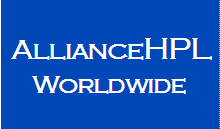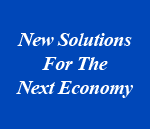We are in business to help our Clients achieve improved business performance through risk mitigation by the creation of an informed, technologically-enabled and measurement focused organization.
Our belief is that without this broader definition, the end-goal of making better informed business decisions cannot be achieved.
Which is why AHPL has created an expanded practice that delivers an enhanced ability for its Clients to not only better manage the traditional aspects of risk, but to extend the Client’s ability to look “over the horizon” and to identify, track and assess potential business risks before they gain traction.
In addition, this practice integrates the critical technological expertise to ensure that enhanced knowledge (as opposed to tonnage of information) is acquired, analyzed and propagated horizontally across the organization in a form that is consistent, timely and actionable.
Finally, the demands of the “Next Economy” require that the forward-thinking company created a “closed-loop” measurement system that captures a broad spectrum of mission-critical market intelligence, including risk factors, coupled with consumer segmentation, channel segmentation, customer adoption performance and long-term CRM and customer profitability management.
As such, our Practice consists of the following areas of concentration:
- Risk Assessment / Process Management
- Information Technology Systems Management
- Marketplace Measurement Systems
Enhancing Knowledge Management Systems
Most companies consider Knowledge Management in the context of implementing a Customer Relationship Management (CRM) system, or internal publishing, reporting or other document management enhancements. Unfortunately, the cost of such a system (as measured by Total Cost of Ownership) may be vastly larger than any sensible projected return. TCO includes not only the hardware and software to support the system, but the time and effort to change workflow processes and company culture and organizational responsibilities to comply with it.
Knowledge management is like strong medicine; a little goes a long way. To be effective and cost effective, a KM project needs to have specific goals and measurable outcomes, just like any other project. The danger in a vendor managed KM implementation is that the volume of information that a business needs to manage as company-wide knowledge is usually only a fraction of the total volume of information available. Most vendors have the skills and disciplines for the implementation, but not the business understanding to deliver a customized solution for your business. We provide the link between your executive and managerial needs and the vendor that you have chosen.
KM implementation categories that have proven value include:
- Sharing information with your employees
- Sharing information with your customers
- Sharing information with the public, the press (and your competitors)
- Cost savings through structured dialogs (call center avoidance)
- Multilingual sites and dynamic assembly
Our Knowledge Management Systems practice consists of:
Marketplace Measurement Systems

